Heat, Green, Some Characters…and more Green
There are moments when the senses tell the rest of the body that one has arrived; moments when the body knows something before the mind does.
Stepping out of a plane’s hatch, hot air and a wall of new smells blast into the nose. I have arrived.
Xishuangbanna and its understated little airport in Jinghong often do this to me, pleasantly but relentlessly assaulting the senses. Jinghong, the capital of the region welcomes me with nothing even close to grandness. The airport is one building of nothing-in-particular and one still walks to the arrival ‘room’ to collect luggage. A different speed, and blasts of colour await everywhere.
Pineapples, magnolia, and exotic flavoured night flowers aside, it is the tea that I have come for.
A day later I am stationed on a little green chair surrounded by tea in Menghai, a quick hour from the capital. A tight, two-floor affair, the teahouse I sit in is one of the many I will visit. A kitchen upstairs (and the requisite but suspect toilet) ensure that my tea sessions are uninterrupted by the need to depart the building. Only a little mattress is missing to complete the autonomy. My hostess ‘Dan’ has got tea flowing in a small flood of stimulant happiness. A fire-plug of energy, she is of the Pulang, or Pu people, one of the planet’s original tea cultivating peoples.
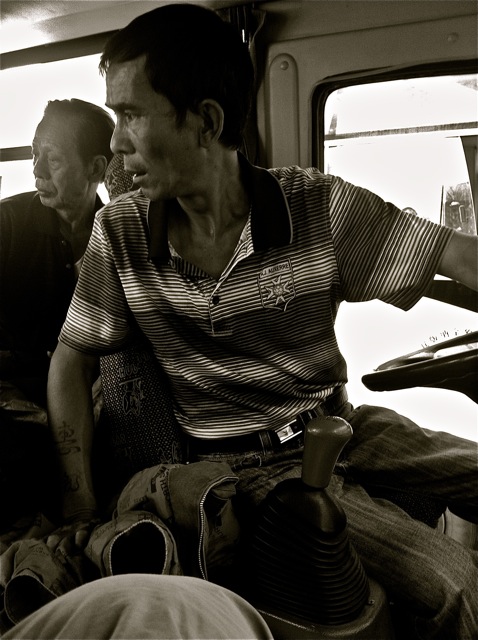
Getting from Jinghong to Menghai, a bus (and in this case its lethal and slightly insane driver) is needed...probably wired on tea
Teas from southern Yunnan are pricey this year but the quality is unquestioned. Successive drought years have depleted amounts of tea but in that wonderful ironic way, the tea that ‘is’ available is generally excellent. What it means for tea sellers is that, the ones who sell quality teas will do fine; the ones that try and dupe or have a reputation that is less than scrupulous will struggle. What it means for my own tea sourcing and slurping mission is that I will widen my area of interest to smaller and lesser-known areas that have never really been on the tea map.
This little bit of ‘natural selection’ bodes well. I will only visit the areas I trust and a couple of additional ‘new’ areas that I’ve not been. It never bodes well to only stick to a few places and teas, and there are always those little areas with great tea that exist, without a known ‘name’. I do however try to ensure that the actual tea makers I source from are limited to a select few. The epic Banzhang teas have reached over a thousand dollars a kilogram depending on their maker and origins.
Additionally, in the intense world of tea in these tea-crazed regions, many buyers from Guangdong are now moving here and setting up their own production facilities to ensure that they can absolutely control the quality (and price). It will make for some interesting dynamics in the coming years. Where previously these powerful tea mavens would simply buy up entire harvests, they now transport the leaves directly to their factories nearby and control the entire process from there on in. They essentially headhunt the best tea makers in their relentless efforts to secure quality and consistency.
All of the characters that I rejoice in seeing on my visits down here are in fine form…some with new weight on their faces, others with new wealth, but all with that same delighted buzz that I’ve always associated with tea-people. One old friend’s father and mother show up in a casual mess of a tuk-tuk. In their mid-seventies, ‘mother’ is short squat and hosts a formidable appetite, while her husband is a spry man with freshly dyed hair and a smile that seems permanently fixed on his face. When he sips, he sips for the world. He sips with an elegance that belies his upbringing in a small local mountain town, and I cannot help but love him.
The tea action begins immediately with updates, gossip, and the latest regrets. Thankfully, though, there is tea to accompany all of the words and smiles.
Things in this area happen without warning in a kind of tea-fed fury, and this tradition continues when, on the first morning I am whisked off to a little tea factory that is doing great things in smaller quantities.
Steamed tea wafts blow the sinuses open as I peer into a spotless ‘production’ room. Six workers sift, weigh, steam, wrap, and press the tea cakes. Simple and precise, little factory is exactly what interests me as they alone can manage to maintain an attention to detail.
Minutes after an impromptu tour, we are sitting in the little ‘office’ hurling back cups of a local Pulang Shan tea…and this is as good a place as any to finish a tea blog posting.


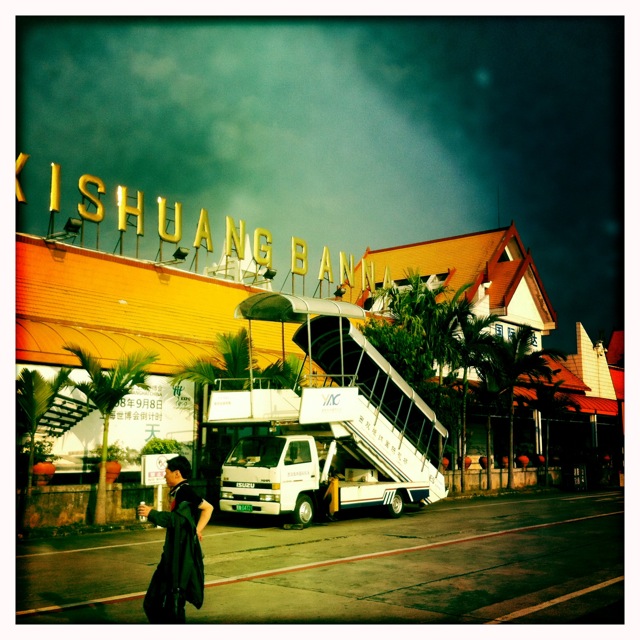
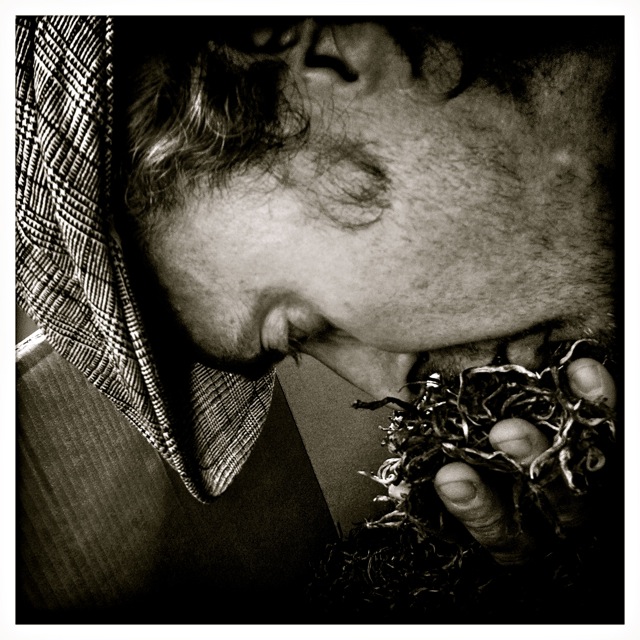
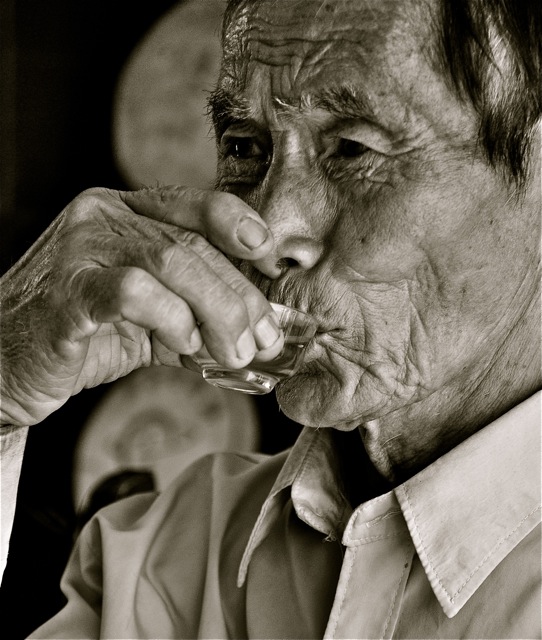
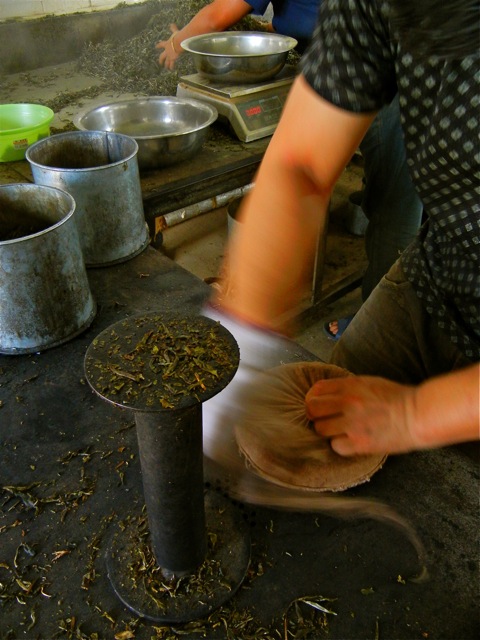
I think of the world as a global village. And its true, tea is served everywhere but some places and some people are abuzz with it. Thank you for capturing this. I know it sounds absurd, but your friend’s father – I love him too.
Glad you love the ‘old boy’, my friend’s father. He in his simple appreciation of a cup of tea reminded me of tea’s eternal appeal: its simplicity.
It is his ‘kind’ that remember a time when tea was quite literally everything.
Jeff